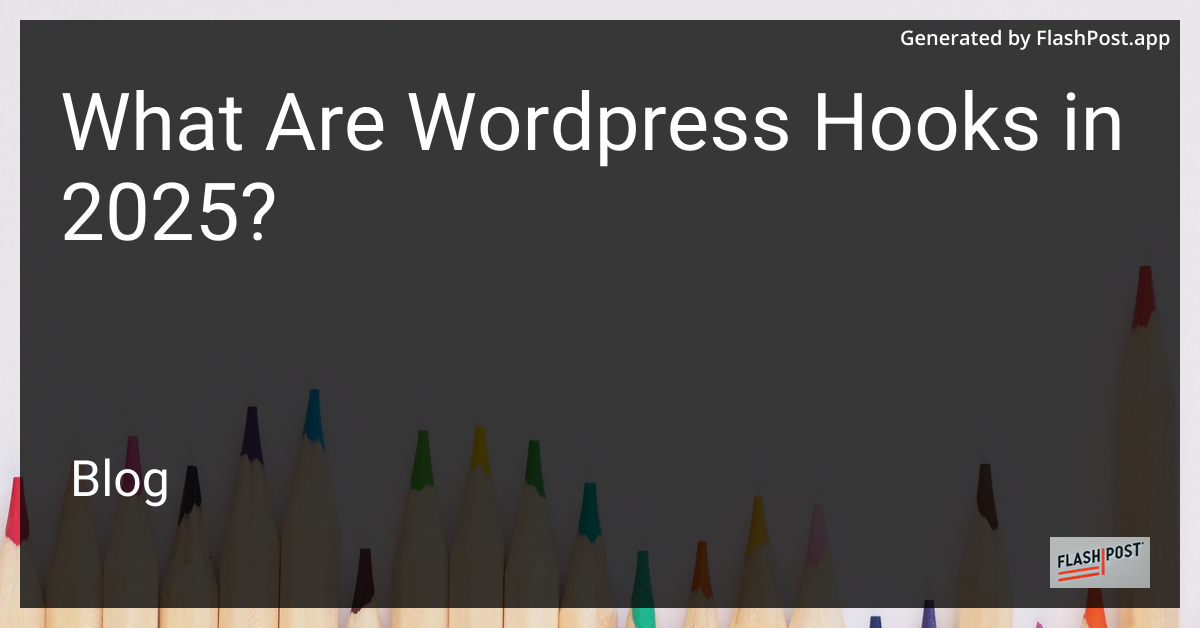

WordPress hooks are an essential component that allow developers to modify or extend WordPress functionalities without modifying core files. As of 2025, they continue to play a pivotal role in plugin and theme development, offering a robust way to ensure customization and functionality enhancement.
| Product | Features | Price |
|---|---|---|
 WordPress for Beginners 2025: A Visual Step-by-Step Guide to Mastering WordPress (Webmaster Series) |
Add to Cart  |
|
 Ultimate WordPress Handbook: An Essential Guide to Designing Stunning WordPress Websites, Driving Traffic, and Boosting Revenue (English Edition) |
Add to Cart  |
|
 WordPress For Dummies (For Dummies (Computer/Tech)) |
Add to Cart  |
|
 WordPress To Go: How To Build A WordPress Website On Your Own Domain, From Scratch, Even If You Are A Complete Beginner |
Add to Cart  |
|
 WordPress: The Missing Manual: The Book That Should Have Been in the Box |
Add to Cart  |
In WordPress, there are primarily two types of hooks: action hooks and filter hooks.
By using hooks, developers can create highly customized WordPress environments. For example, hooks are pivotal in WordPress front page customization, allowing for unique design implementations and content arrangement. Hooks also facilitate seamless integration of additional functionalities such as custom widgets or dynamic features.
The process of implementing hooks remains streamlined and efficient, making it easier than ever for both novice and experienced developers to leverage. As themes and plugins get more advanced, hooks continue to be fundamental in maintaining compatibility and efficiency across WordPress setups. Whether it's adding specific code snippets or modifying WordPress images, hooks ensure every change is impactful yet non-intrusive.
Looking towards the future, it's expected that WordPress hooks will grow even more sophisticated. They will likely incorporate advancements in automated testing and AI-driven analytics, thus predicting changes and offering suggestions for optimal performance. For instance, if you need to downgrade a WordPress plugin, hooks ensure the process is smooth and consistent without losing functionality.